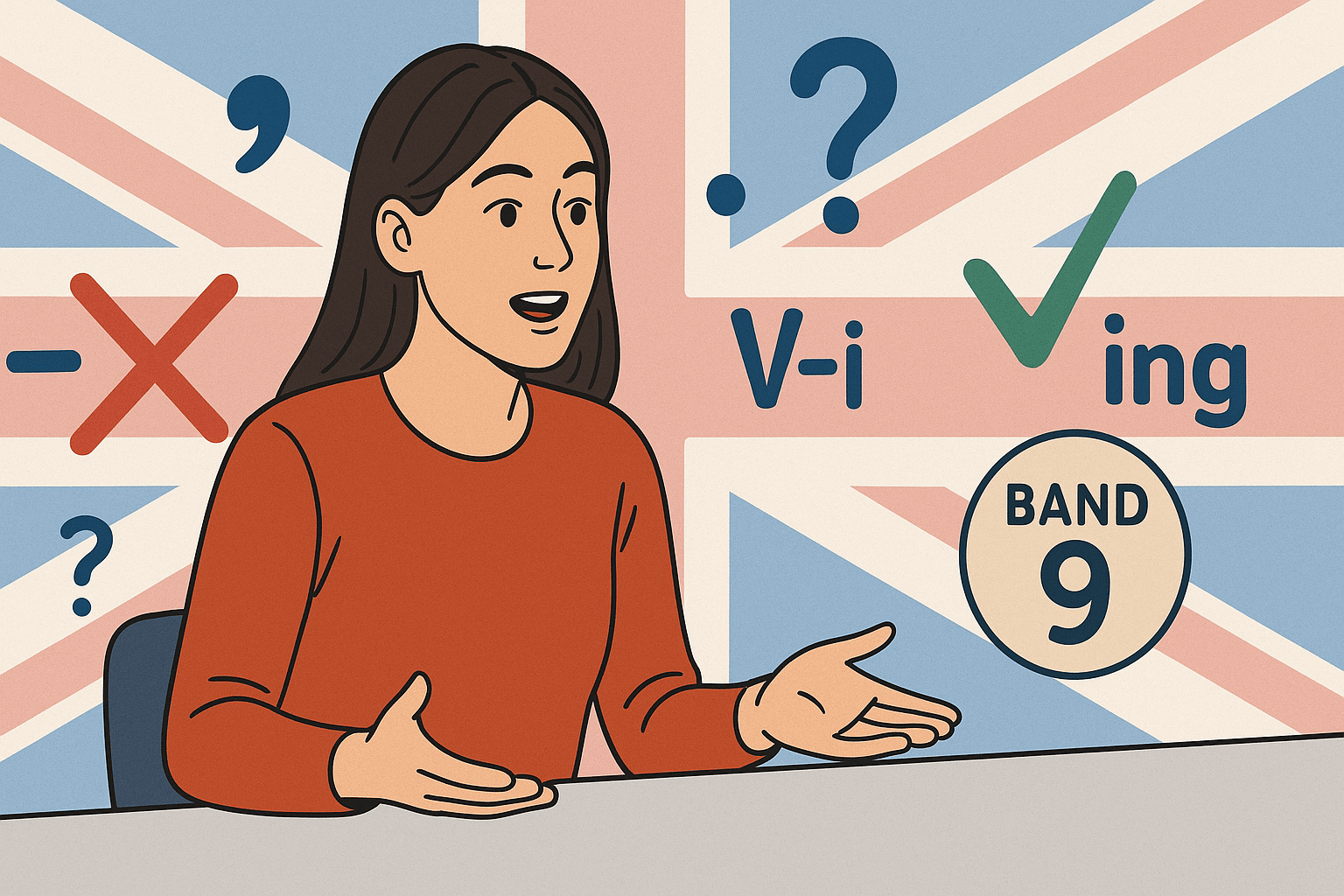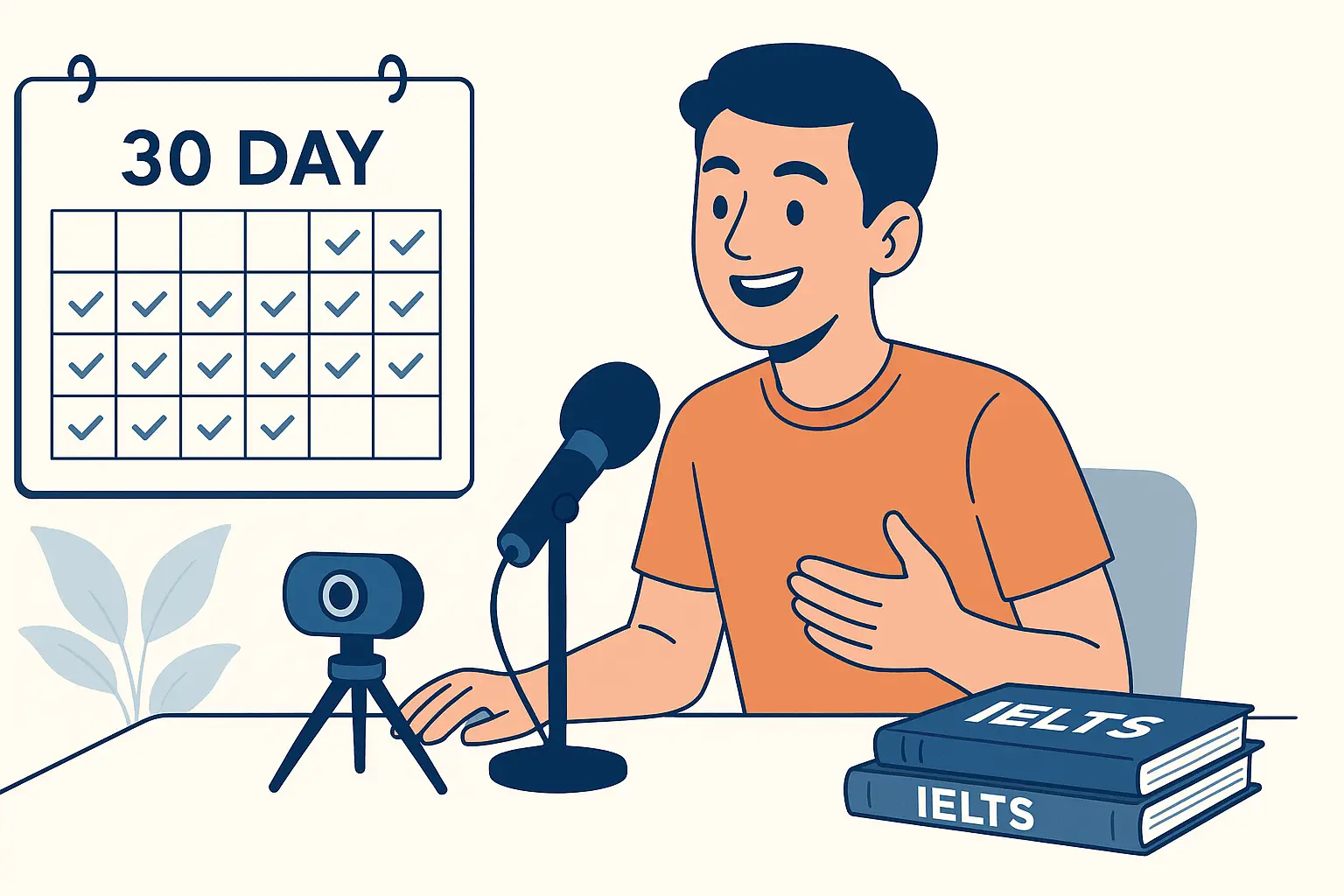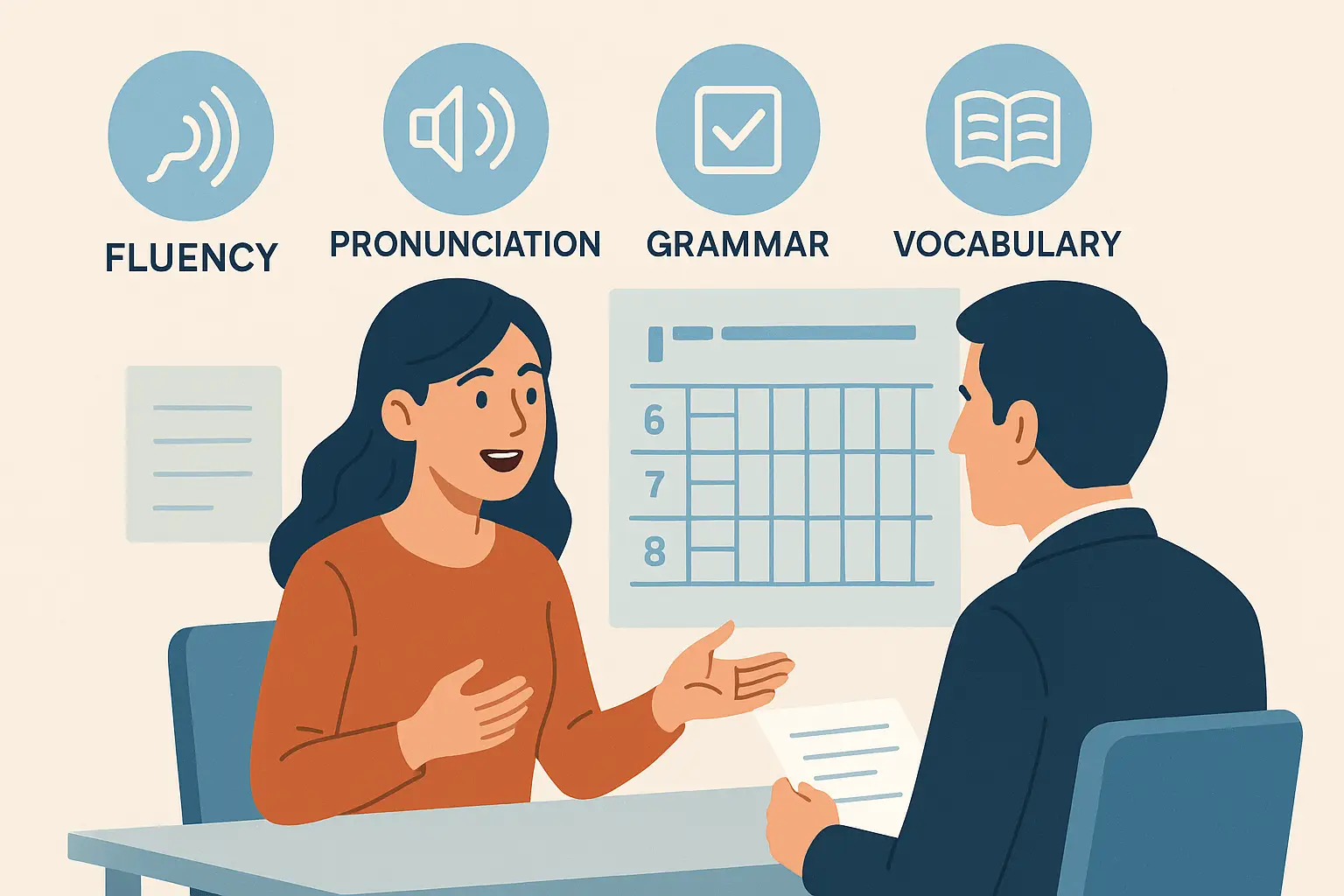When I first started teaching IELTS students over a decade ago, I quickly noticed something that hasn’t changed since—grammar is often the weakest area in IELTS Speaking, even for students who can speak confidently. If you’re aiming for Band 7 or above, mastering IELTS Speaking Grammar is essential, not just for accuracy, but also for fluency and natural expression.
In this post, I’ll share the most common grammar mistakes I’ve seen in real IELTS speaking tests and how I’ve helped my students fix them. You’ll walk away with practical strategies to level up your grammar, avoid Band 6 traps, and sound much more natural when you speak.
Why Grammar Really Matters in IELTS Speaking
Unlike IELTS Writing, grammar in Speaking is judged in context. That means the examiner isn’t expecting you to sound like a textbook—but they are expecting accuracy, variety, and flexibility. According to the official IELTS Speaking band descriptors, grammatical range and accuracy is 25% of your score.
Many students think small grammar errors don’t matter if they speak fluently. Unfortunately, this is one of the most damaging myths. The truth is, IELTS Speaking Grammar mistakes can lower your score significantly, even if your ideas are good.
The Most Common Grammar Mistakes I See
1. Tense Confusion During Storytelling
When students describe past experiences, they often mix present and past tense:
❌ “Last year I go to Paris with my friends and we are eat a lot.”
✅ “Last year I went to Paris with my friends and we ate a lot.”
Solution: I train my students to quickly visualise time before they speak. Is it past, present, or future? That single habit improves tense accuracy almost instantly.
2. Forgetting Subject-Verb Agreement
Even advanced learners mess this up under pressure:
❌ “My sister live in Canada.”
✅ “My sister lives in Canada.”
Tip: Record yourself speaking and play it back. You’ll be shocked how many small agreement mistakes you make without realising.
3. Overusing Basic Sentence Structures
Examiners want to hear a range of grammar, not just “I like…” or “I think…”
❌ “I like to play football. It is fun. I play it every weekend.”
✅ “I enjoy playing football, which helps me stay active. In fact, I usually play it every weekend with my friends.”
Try this: Add relative clauses, conditionals, and complex connectors to show flexibility. You don’t need to be perfect—just aim for variety.
4. Incorrect Use of Articles (a, an, the)
This is especially tricky for students from non-article languages.
❌ “I want to be doctor.”
✅ “I want to be a doctor.”
❌ “I saw a movie. Movie was amazing.”
✅ “I saw a movie. The movie was amazing.”
Fix: Learn the rules, yes—but more importantly, listen and notice patterns. This is something we practise a lot in my classes.
Real Student Example: From Band 6 to 7.5
One of my students from Brazil, Letícia, consistently scored Band 6 in Speaking. Her fluency was strong, but grammar dragged her down. She often used only present simple and avoided complex sentences out of fear of making mistakes.
We spent 3 weeks targeting grammar flexibility—daily practice with varied sentence types, real-time corrections, and shadowing Band 9 samples. Her next Speaking test? Band 7.5. The only thing we changed: her approach to IELTS Speaking Grammar.
How to Practice IELTS Speaking Grammar Effectively
Here’s what I recommend to all my learners:
- Shadow native speakers: Focus on sentence structures, not just pronunciation.
- Use IELTS-specific grammar drills that mimic real test responses.
- Record and reflect: Speaking + self-feedback is 10x more powerful than passive learning.
- Study grammar in context. That’s why I’ve built a full resource library at IELTS ZONE Speaking Guide and Grammar, Pronunciation & Fluency Hub.
Also, make sure to visit official websites like IELTS.org, British Council IELTS, and IDP IELTS for up-to-date info on scoring and practice resources.
Final Thoughts
Fixing grammar doesn’t mean becoming robotic or over-correcting every sentence. It means becoming intentional. With the right strategies, even advanced grammar structures can become part of your natural speaking. And once grammar stops holding you back, Band 7, 8—or even 9—becomes much more achievable.
Frequently Asked Questions (FAQ)
Q1: Can I still get Band 7 if I make grammar mistakes in IELTS Speaking?
Yes, but only if your mistakes are occasional and don’t impact understanding. You also need to show a range of sentence types.
Q2: How much grammar does the examiner expect in Speaking?
Examiners expect accurate use of tenses, subject-verb agreement, complex structures, and some flexibility in form. They’re not grading you like a grammar test—but poor grammar will lower your score.
Q3: What’s the best way to fix grammar mistakes before my IELTS test?
Record your responses, identify repetitive errors, and work on one grammar issue at a time. Also, practise real test-style questions regularly.
Q4: Do I need to speak with perfect grammar to get Band 9?
Not perfect, but nearly error-free. More importantly, Band 9 speakers use complex structures naturally and flexibly without sounding rehearsed.
Q5: Where can I practise IELTS Speaking Grammar in context?
You can start with free lessons on IELTS ZONE’s Speaking Guide and explore our Grammar, Pronunciation & Fluency section for deeper practice and examples.




